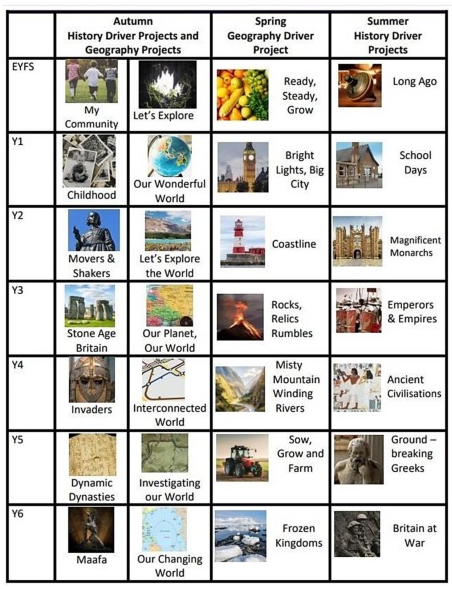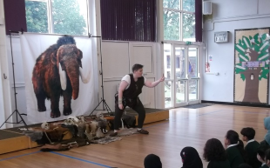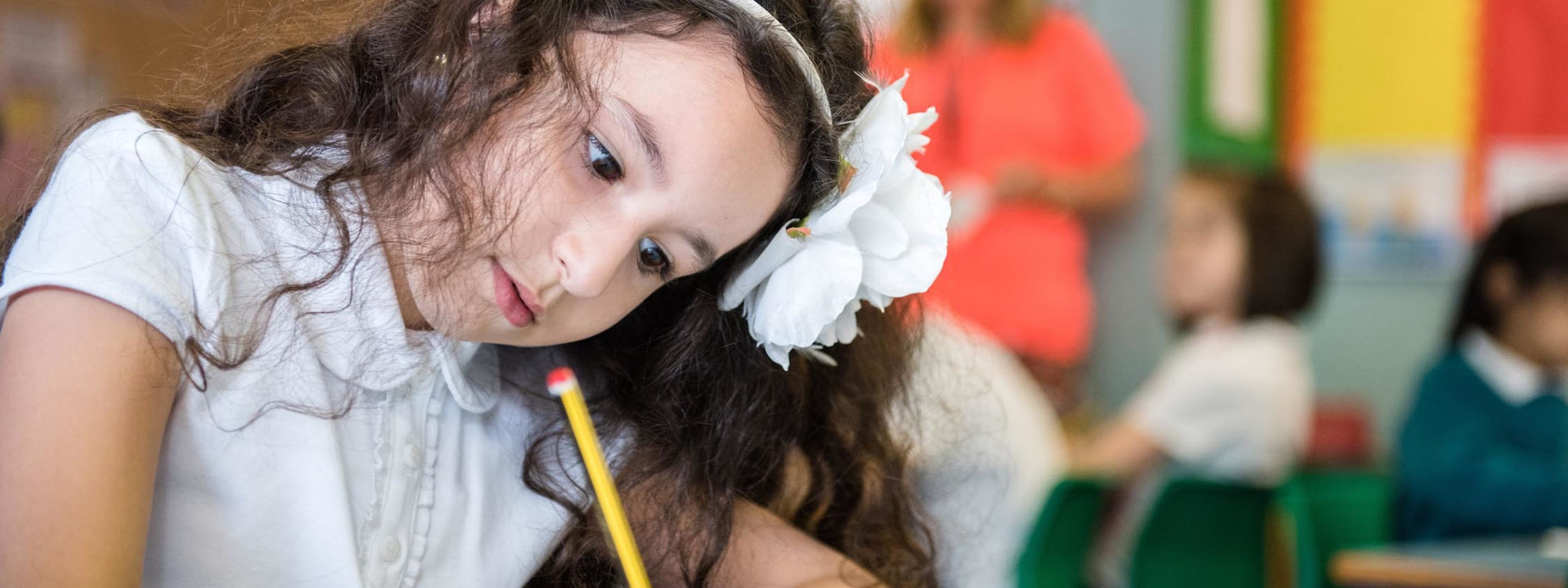- Home
- Curriculum
- Subject Information
- History
History
"We are not makers of history, we are made by history." - Martin Luther King Jr.
Intent
At Firs Primary School, we strive to offer a broad and balanced History curriculum that is inclusive of all pupils. We use historical visits and guest speakers to create a sense of awe and excitement around our topics, which are carefully planned and sequenced. This ensures that pupils become enthusiastic historians who are eager to explore the past and develop a passion for history.
Through our History curriculum, we aim to help pupils develop a strong understanding of their identity at local, national, and global levels, while exploring key concepts such as change, chronology, diversity, and challenge.
Pupils will use historical skills, such as research and evaluating different sources of evidence, to discuss the past. This approach helps to develop their Oracy skills, encouraging them to become active participants in their historical learning using Voice 21 strategies.
Our chosen vehicle for delivering the history programmes of study is Curriculum Maestro.
Our History overview:

Implementation
In line with the school’s curriculum approach, we follow the Cornerstones curriculum for History lessons. This ensures that lessons are well-planned, robust, and engaging, while also providing opportunities for pupils to progressively build their historical knowledge and skills in an exciting and meaningful way.
To meet the diverse needs of all learners, we use adaptive teaching strategies, including dual coding and resources like Widgit, to support different learning styles. Lessons are structured to be inclusive, engaging, and aligned with the aims of the primary history curriculum.
Historical learning is further consolidated through immersive experiences, such as historical visits and termly immersion days, which bring history to life and deepen pupils' understanding of the past.
Historical Concepts and Skills:
Our curriculum is designed to systematically deepen children’s understanding of key historical concepts outlined in the national curriculum, including continuity and change, cause and consequence, similarity and difference, and significance. Through these concepts, students make connections, identify contrasts, analyze trends, pose historically valid questions, and craft structured accounts, including written narratives and analyses. These concepts and skills are revisited and built upon in each unit and year group, progressively enhancing students' historical understanding year after year.
Historical Knowledge:
We were mindful of the cognitive load placed on children, recognising that knowledge-rich content can be overwhelming when introduced all at once. To address this, we ensured that lessons present new facts and concepts in manageable chunks. Each new topic builds on prior learning, while the teaching approach emphasizes the review and retrieval of key information.
In addition to knowledge acquisition, we place a strong emphasis on developing historical skills. Substantive knowledge—the historical facts that form the core narratives of the curriculum—is carefully integrated with disciplinary knowledge, which enables students to make use of these facts in meaningful ways. Substantive knowledge is outlined in aim number 6, which sets the breadth of the curriculum and specifies key abstract concepts we should include. Disciplinary knowledge, on the other hand, focuses on how we apply these facts through historical inquiry and concepts, as highlighted in aims 4 and 5. These aims encourage students to move from simply recalling facts to actively engaging in historical analysis.
Impact
How we measure the success of our History Curriculum:
Children will demonstrate:
- A solid understanding of key people, events, and contexts from the historical periods studied.
- The ability to think critically about history and communicate their ideas confidently in various formats, tailored to different audiences.
- Skills in reflecting, debating, discussing, and evaluating historical events, while developing and refining questions and lines of enquiry.
- The ability to discuss and evaluate the merits of primary and secondary sources, understanding their significance in constructing historical narratives.
- A genuine passion for history, fostering a deep curiosity about the past and an enthusiastic engagement in their learning.
- A strong respect for historical evidence, with the capability to use it thoughtfully and critically to support their explanations and judgments.
By the time pupils leave Firs Primary School, they will have developed the skills, knowledge, and understanding to succeed as budding historians, with a passion for history, in secondary education and beyond.
Useful websites:
History Primary Resources | National Geographic Kids
Primary History teaching resources
MWNF - Museum With No Frontiers
IWM Collections | Imperial War Museums


